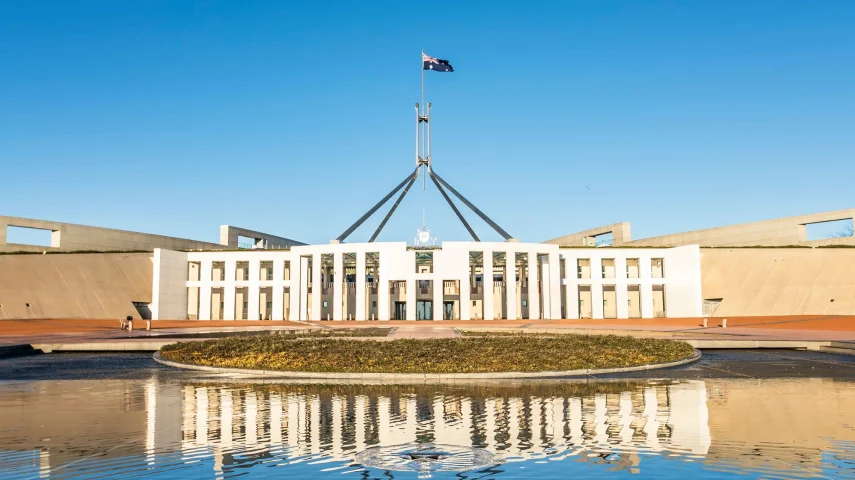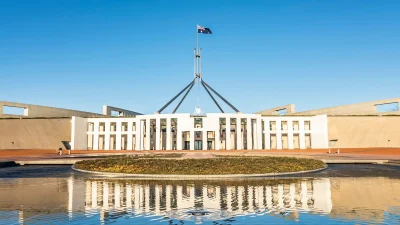Signed, sealed and delivered: Treasury consultations in 2024



With a raft of Treasury consultations announced last year, Money Management examines their progress and the next stages they could reach this year.
These include three consultations related to financial advice and its delivery, and two focused on superannuation and retirement.
Money Management has covered the main regulation that is currently working its way through Parliament.
Quality of Advice Review
While an initial consultation was held in 2022, the government has since published its final response to the paper and will be consulting on the design of draft legislation in 2024 with legislation then expected to be progressed to Parliament before the end of the year.
The first stage of the response, which closed for submissions on 6 December, covers reducing red tape, superannuation funds providing financial advice, conflicted remuneration provisions and ongoing fees.
The second and third stages cover best interests duty, a roadmap for financial advice reform and expanding superannuation advice. Announcing them on 7 December, Minister for Financial Services, Stephen Jones, said the changes are needed as professional advisers are unable to scale their businesses to meet the level of consumer demand for advice.
However, industry commentators have questioned whether Jones is being too ambitious in targeting all reforms to be passed by the end of the year.
Ben Marshan, policy consultant, said: “There are still consultations and draft legislation to come. There might then be a second round and a consultation with ASIC, so I think it’s more likely to be in 2025 or even 2026. There is still a long way to go.”
Financial adviser exam – changes in exam delivery
Announced at the end of the year, this consultation focused on the delivery and accessibility of the financial adviser exam, including removing short answer questions in favour of multiple choice ones and removing the requirement that only provisional relevant providers and existing advisers can sit the exam.
Professional Year candidates told Money Management that they hope the changes will bring costs down and increase the frequency of exams held compared to the current rigid timetable.
Andrew Clucas, provisional financial adviser at Queensland advice practice McGregor Wealth Management, said: “The cost of the adviser exam should absolutely go down if there are efficiencies generated by replacing short answer questions with multiple choice questions.”
As a result of the consultation, the date of the first ASIC financial adviser exam was pushed back from 15 February to 26 March 2024.
The consultation closed on 10 January 2024.
Review of the regulatory framework for managed investment schemes
In August, the Treasury announced it will be reviewing the appropriateness of the regulatory settings for managed investment schemes (MIS). This followed several high-profile failures of MISs, including Sterling Income Trust and Trio Capital, and sought to ensure strong investor protections were put in place.
This included matters such as determining whether an investor is a wholesale client, the role of responsible entities, liquidity requirements for the schemes, and whether an insolvency regime is required.
In a submission to the consultation, the Financial Advice Association Australia said the test for whether someone is a wholesale investor – which means they are ineligible for internal dispute resolution schemes in the event of an MIS failure – should be amended as too many consumers met the asset test.
At the time of its implementation, only 1.9 per cent of the population could be classified as wholesale investors with net assets of $2.5 million or annual salary of $250,000, but this has since risen to 16 per cent, some 3.5 million people.
The consultation closed on 29 September 2023 and the matter is in the review stage with Treasury stating it expects findings from the review to be available in early 2024.
Superannuation in retirement
Following the Retirement Income Covenant, the Treasury announced a second consultation into retirement and how the superannuation system can provide the security and income for Australians in retirement.
The consultation focuses on supporting members to navigate the retirement system, delivering better retirement income products and services, and making lifetime income products more accessible.
Treasurer Jim Chalmers said: “While there is recognition of super’s importance in building nest egg savings, there has been less attention on optimising its role in retirement. There’s a clear need for better information, support and well-rounded income products to help retirees make the most of their super.
“Super funds need to do more to understand their members’ retirement needs and provide products and services tailored for their retirement. We also recognise there is a role for government and regulators in creating an environment that supports these changes.”
Submissions will be open until 9 February 2024.
Legislating the objective of superannuation
Also in the superannuation space, Treasury sought to define an objective of super to provide a shared direction for government, the superannuation industry and Australians.
It will ensure that future changes to the superannuation system are compatible with its objective by requiring policymakers to assess proposed changes to super legislation for compatibility with the objective.
The proposed objective of superannuation put forward was “to preserve savings to deliver income for a dignified retirement, alongside government support, in an equitable and sustainable way”.
Research by Industry Super Australia found Australians “overwhelmingly” believe super should be used for financial security and wellbeing in retirement, with 80 per cent of the 1,100 surveyed people saying they believe in the financial safety net offered by the super system.
The consultation closed on 29 September 2023, and the bill has reached Parliament as the Superannuation (Objective) Bill 2023 with the proposed objective unchanged.
Recommended for you
The rise of private credit funds is giving research houses cause for concern about their viability for retail and wholesale investors and necessitating changes to their research process.
The rebranding of the AMP advice division to Akumin brings to an end a 176-year history for the firm and provides a fresh start for advisers under Entireti.
With alternative funds being described as “impossible” for fund managers to target towards advisers without the support of BDMs for education, Money Management explores the evolving nature of the distribution role.
Commentators say the lack of transparency in private markets is making it difficult for fund managers and advisers to assess them from an ESG perspective.















